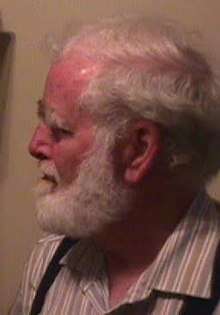W. R. (Red) Alford
William Robert "Red" Alford (July 21, 1937 – May 29, 2003) was an American mathematician who worked in the fields of topology and number theory.
W. R. Alford | |
|---|---|
 W. R. "Red" Alford at the SERMON '99 conference | |
| Born | July 21, 1937 |
| Died | May 29, 2003 (aged 65) |
| Occupation | Mathematician |
Biography
Born in Canton, Mississippi, he was a United States Air Force veteran. He earned his Bachelor of Science in mathematics and physics from The Citadel (1959), his Ph.D in mathematics from Tulane University (1963),[1] and his J.D. from the University of Georgia School of Law (1976) in Athens, Georgia. After earning his J.D. he practiced law in Athens, before returning to the mathematics faculty. He retired in 2002. He died at 65, after suffering from a brain tumor.[2]
With Andrew Granville and Carl Pomerance, he proved the infinitude of Carmichael numbers in 1994[3] based on a conjecture given by Paul Erdős.
Although MathSciNet credits him with only eleven publications, two were in Annals of Mathematics, the most prestigious mathematical journal -- the Carmichael numbers paper, and a 1970 paper in knot theory.
References
- W. R. (Red) Alford at the Mathematics Genealogy Project
- "William R. (Red) Alford". Number Theory Web. Retrieved 2008-02-13.
- W. R. Alford, A. Granville, and C. Pomerance. "There are Infinitely Many Carmichael Numbers." (PostScript) Annals of Mathematics 139 (1994) 703-722.
External links
- "William Alford". Archived from the original on June 7, 1997. Retrieved August 23, 2016.